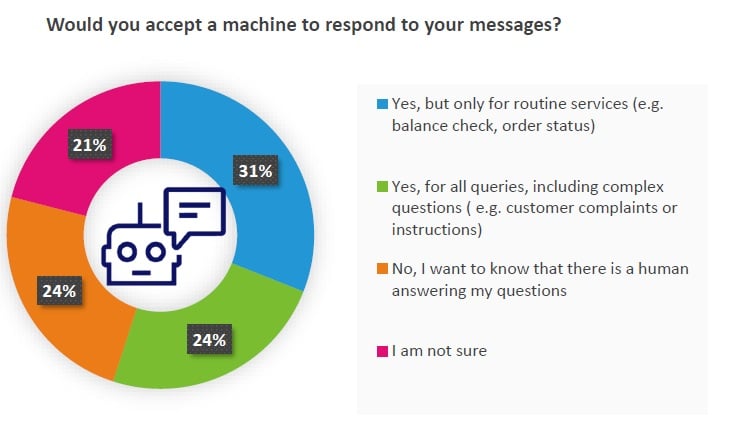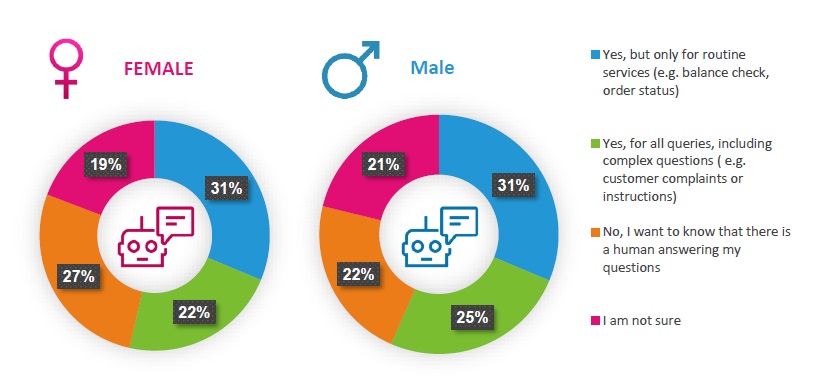Get key insights from MEF’s P2A Business Messaging report which examines how consumers wordwide are engaging with brands and businesses via person to application messaging. Here we look how accepting consumers are of chatbots and what they could be used for, and some off the differences noted according to gender.
Smartphone users do not reject the idea of chatting with an artificial intelligence service – the chatbot – which can automatically answer questions with no or limited intervention from a human operator.
- 31% of the users consider these automated services appropriate for ‘routine checks’ such as account balances or order status.
- 24% of the users are comfortable to deal with more complex enquiries such as complaints, or service instructions via chatbots
- However, 24% would prefer to communicate directly with a human assistant and 21% have not enough experience to decide.
-
Women are currently less likely to trust a robot to answer their queries to a business. 27% of women want a human to reply to their questions ( a 5-percentage point increase over the men at 22%).
-
25% of men are comfortable with chatbot dealing with their complex requests (3 percentage points higher than females – at 22%). Men are equally likely as women to welcome an automatic replying service for simple questions (both at 31%).
-
Only 19% of female users are not sure, and 21% of male users do not have an opinion.
P2A Business Messaging 2020
Users can now message businesses and get immediate discursive communications via an application. The advance of artificial intelligence makes meaningful chat with bots a possibility, but are human users ready to use them?
MEF’s P2A Business Messaging 2020 report is based on 6500 interviews across 10 countries: Brazil, China, France, Germany, India, Japan, South Africa, Spain, UK, USA.
Download Now








